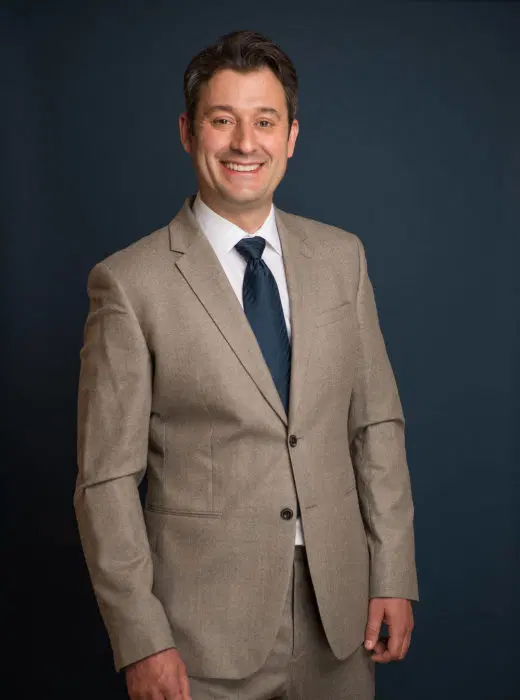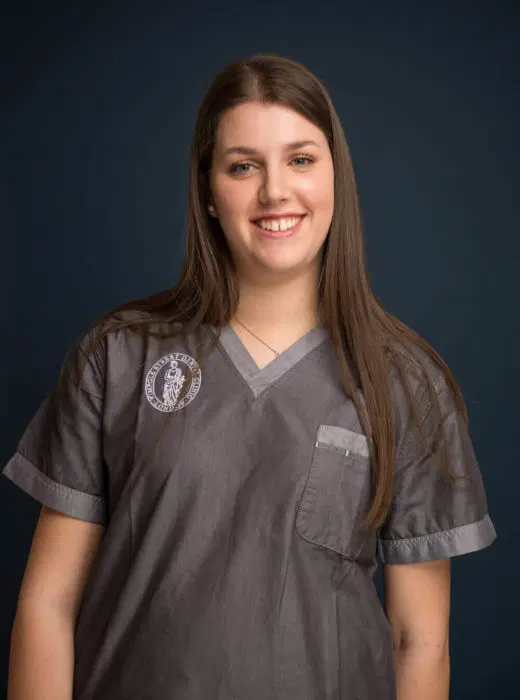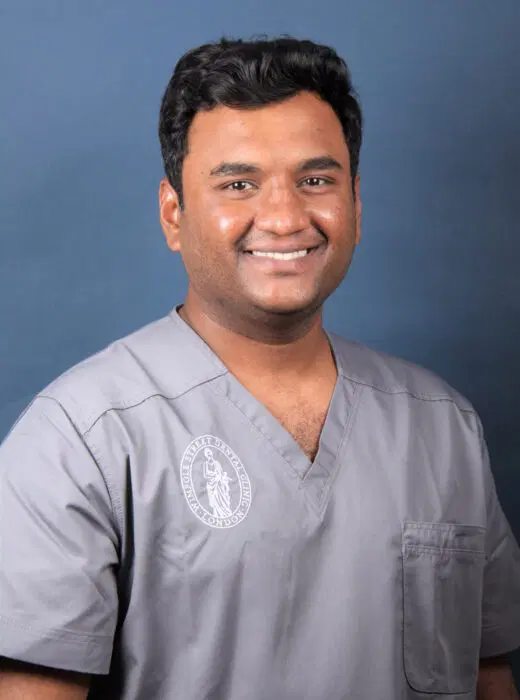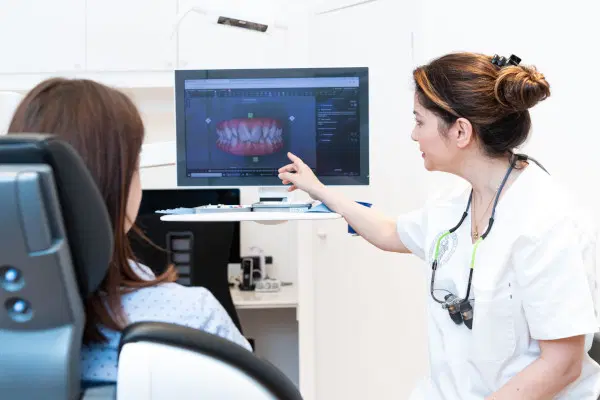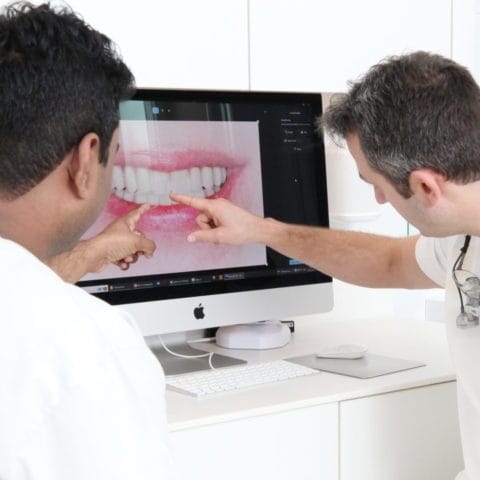Your Prosthodontist in London
Tooth decay and gum disease are the two primary causes of tooth loss. By maintaining an effective dental hygiene routine and making regular trips to our dental practice for cleaning and check-ups, it is possible to keep your teeth healthy and your smile intact.

Treatment Duration
Dependent on treatment

Price
Dependent on treatment

Recovery Time
24 hours
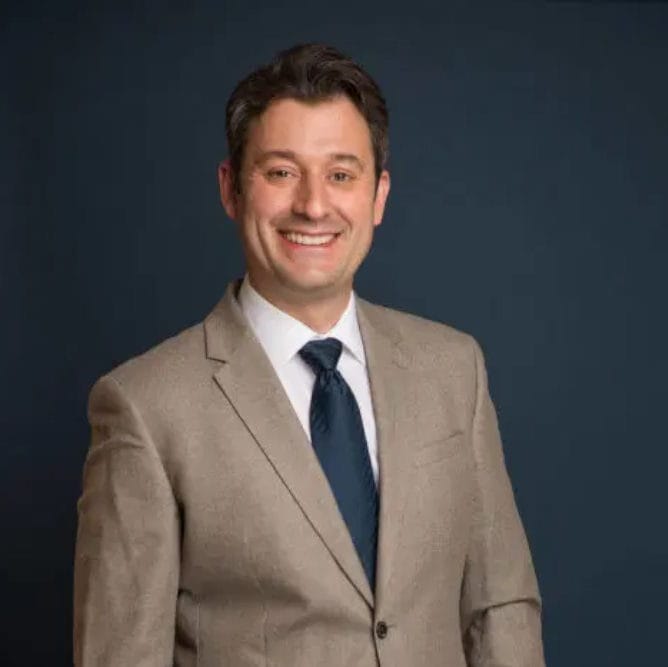
Prosthodontics at Wimpole Street Dental Clinic is a specialised field of dentistry dedicated to solving the practical and aesthetic implications of tooth loss by creating a range of ultramodern dental prosthetics designed to restore optimum oral health, smiles and confidence. We offer implant-supported restorations of all kinds, inlays, onlays, partial crowns, crowns and bridges plus full or partial dentures as considered health choices for you to discuss with your dentist if you wish to go ahead with prosthodontic treatment.
Implants are artificial roots for new replacement teeth completed with a crown, bridge or dentures. Inlays, onlays, partial crowns and crowns replace missing or damaged tooth material for a single tooth. Bridges literally bridge the gap caused by the missing tooth and our all-ceramic option offers excellent aesthetics, a precise fit, and long-term stability, is very durable and made from a highly biocompatible material. Full or partial removable dentures are a less invasive option to think about. Plus, if your jawbone and/or gums require extra support to hold them in place, they can be inserted as implant-retained dentures to anchor them securely.
All options are precisely designed, manufactured, and fitted by our expert team with prosthodontic treatment often working in partnership with the clinical objectives of cosmetic dentistry and general dentistry to holistically enhance your dental health and overall well-being.
What happens during prosthodontic treatment?
The exact nature of this kind of appointment depends on the specific dental prosthesis you choose to use, after discussion and agreement with your dentist during your treatment planning consultation.
For Dental Implants
Using photos, a 3D X-ray and a digital scan of your mouth, we prepare to proceed with our computer-guided implant operation. You receive appropriate anaesthesia before we begin. Your gums are accessed using a small incision to place the implant into the prepared jawbone and in 99% of these cases, we use a titanium implant.
Post-surgery and after healing, the implant is exposed to the oral cavity so another digital impression is taken to evaluate the position of the implant in relation to the other teeth. Two weeks pass before the final restoration such as a crown, bridge or denture is inserted and so securely attached.
For Inlays, Onlays, Partial Crown and Crowns
If teeth are only partially destroyed they will receive a full ceramic inlay, onlay or partial crown. If teeth are missing bigger parts of tooth material or are filled heavily we might have to prepare for full crowns. For that purpose, teeth are partially or fully ground down circumferentially and a digital scan of the resulting tooth shape is taken. A temporary restoration made from composite or plastic restores the prepared teeth until the final restoration is placed. The permanent full ceramic restoration is either cemented adhesively or conventionally.
For Dental Bridges
We start with the precise preparation of your neighbouring teeth to ensure the bridge produced offers the perfect fit. We use an intraoral scanner to take a digital impression. We place a temporary plastic dental bridge over the prepared area whilst the all-ceramic (permanent) prosthetic is custom-made.
A technician uses the teeth impression to create the prosthetic to your exact colour specification. Once ready, your temporary is removed, your teeth are cleaned and a high-performing adhesive dental cement is applied to secure it in place. Post-treatment, your dentist will advise on aftercare.
For Dentures
Partial
We start with a full set of diagnostic tests to confirm your suitability to receive partial dentures. We take initial and fine impressions with an individual impressions tray respectively to ensure a perfect fit. We conduct a thorough check on the current condition of your jaws, gums and your remaining teeth to confirm you have enough support in place. We produce your partial dentures plate to your exact match for both individual gum colouring and precise teeth positioning. Your partial dentures are then secured in place by clips which are easy to use to insert and remove as you wish. Once satisfied with the result, your dentist will advise on aftercare. Partial dentures with clasps are usually used as a temporary measure to replace missing teeth. Other options for partial dentures are telescopic or implant-supported partial dentures, which can stay much longer than temporary dentures.
Full
Just as for partial dentures, we start with a full set of diagnostic tests to confirm your suitability to receive full dentures. We take initial impressions to produce an individual impressions tray. We additionally conduct a thorough check on the current condition of your jaws and gums to confirm you have enough support in place. To ensure a perfect fit we retake the impression with the newly produced individual tray.
We produce your full set of dentures to your exact match for a snug fit, individual gum colouring and precise teeth positioning. Your full set of dentures is secured due to the perfect fit created. If there is only a little bone left further support is might be offered by a dental sealant (fixative adhesive). However, a more elegant solution would be supporting the dentures with implants underneath. With full dentures, you will experience an initial settling period and might have to visit us to remove sore spots. Once satisfied with the result, we will advise on aftercare and especially how to keep the dentures clean.
Dentures on Implants (Implant-retained Dentures)
Just as for partial and full dentures, we start with a full examination and diagnostic records to confirm your suitability to receive your dentures on dental implants (implant-retained dentures). After discussing all options we again start by taking impressions. Additionally, we conduct a thorough check on the current condition of your jaws and gums to confirm you have enough bone support in place. With a 3D X-ray and a digital impression, we create a guided drilling template to ensure the exact placement of the implants prior to the procedure.
For a removable denture in the lower jaw, two to four dental implants are sufficient. To support a denture in the upper jaw it would be best to place four implants and only in very rare cases, two implants could be enough. After the implants have healed into the bone, which takes between two and five months, we expose your implants to the oral cavity using a small incision. After a renewed impression we produce precisely fitting dentures using individual gums and teeth positioning. The dentures are connected to the implants comparable to a button on your jacket (locator system). Your dentures are further supported by a metal or ultramodern (PEKK) framework. Once satisfied with the result, we will advise on aftercare.
German Telescopic crowns
Just as with all other procedures, the key is to start with a full set of diagnostic records and thorough examination to confirm your suitability to receive your dentures supported by telescopic crowns. We conduct a thorough check on the current condition of your jaws and gums to confirm you have enough support in place for your dentures supported by German telescopic crowns (double crowns). A minimum of two teeth under the denture will support it complemented by a metal or ultramodern (PEKK) framework.
After an initial impression and set-up of teeth, the remaining teeth in your mouth are ground down and a precise impression is taken. After making sure that you are happy with the position of your new teeth the first set of telescopic crowns is cemented on the remaining teeth thus carrying the final telescopic denture. Aftercare as with all dental restorations is an important part of keeping this denture intact for a long time.
Meet your award-winning Prosthodontics dentist and team…
- We have over 75+ years of combined dentistry experience across our specialist team.
- 10,000+ treatments performed and counting.
- We are leaders in the dental industry – we regularly teach, lecture and publish our research work internationally.
Our Expertise
Prosthodontic treatment is dedicated to the creation of dental prosthetics and so is best performed by dental specialists alongside a highly experienced team and who are well equipped to deliver the best ultramodern appliance possible leading to optimum clinical results of their work.
At Wimpole Street Dental Clinic, we are delighted to have Professor Christian Mehl, a specialist prosthodontist and also a founder of our practice; on hand to deliver the best care and results. Professor Mehl leads a team of specialists offering a comprehensive range of skills who can be consulted on at every stage of your individual treatment if needed: from diagnostics to design to the delivery of your bespoke dental prosthesis.
As you can imagine, the success of any prosthesis lies upon the foundation of the perfect fit so we are proud to be best placed to create a custom-made appliance due to the invaluable resource we have in our own laboratory in Munich, Germany run by our master technician team liaising with our central London partners.
Our recently refurbished clinic is located off the prestigious Wimpole Street, just a few doors down from the headquarters of the General Dental Council. Our practice is conveniently located for patients residing and working in central London as it’s accessible by car, taxi, bus, bike and London Underground.
Contact us today to see how we have invested our resources to create perfect, beautifully crafted prosthetics to solve the oral health dilemma of missing teeth.

Wimpole Street Dental Clinic Patient
Wimpole Street Dental has the highest most ethical standard of work, personable approach, clear and safe procedures, top notch excellence and reliability in treatment provided with utmost professionalism from crème de la crème world class specialists all under one roof.
Who is suitable for prosthodontic treatment?
Patients who are missing a tooth may have the practical day-to-day difficulties with oral function such as chewing food at mealtimes or being able to speak clearly and comfortably. If it is not replaced malocclusion (problematic teeth positioning in terms of aesthetic appeal and function) or bruxism (where your other teeth shift into the now open space and cause grinding and joint problems) may occur. Such dental issues can encourage patients to make an appointment to discuss the best options available to solve them effectively. Such patients may present as suitable candidates for the use of prosthodontic treatment.
Take your first step with Wimpole Street Dental Clinic
Discover the path to a brighter smile with Wimpole Street Dental Clinic! Our team of skilled professionals utilizes advanced technology to provide personalised dental care in a comfortable setting.
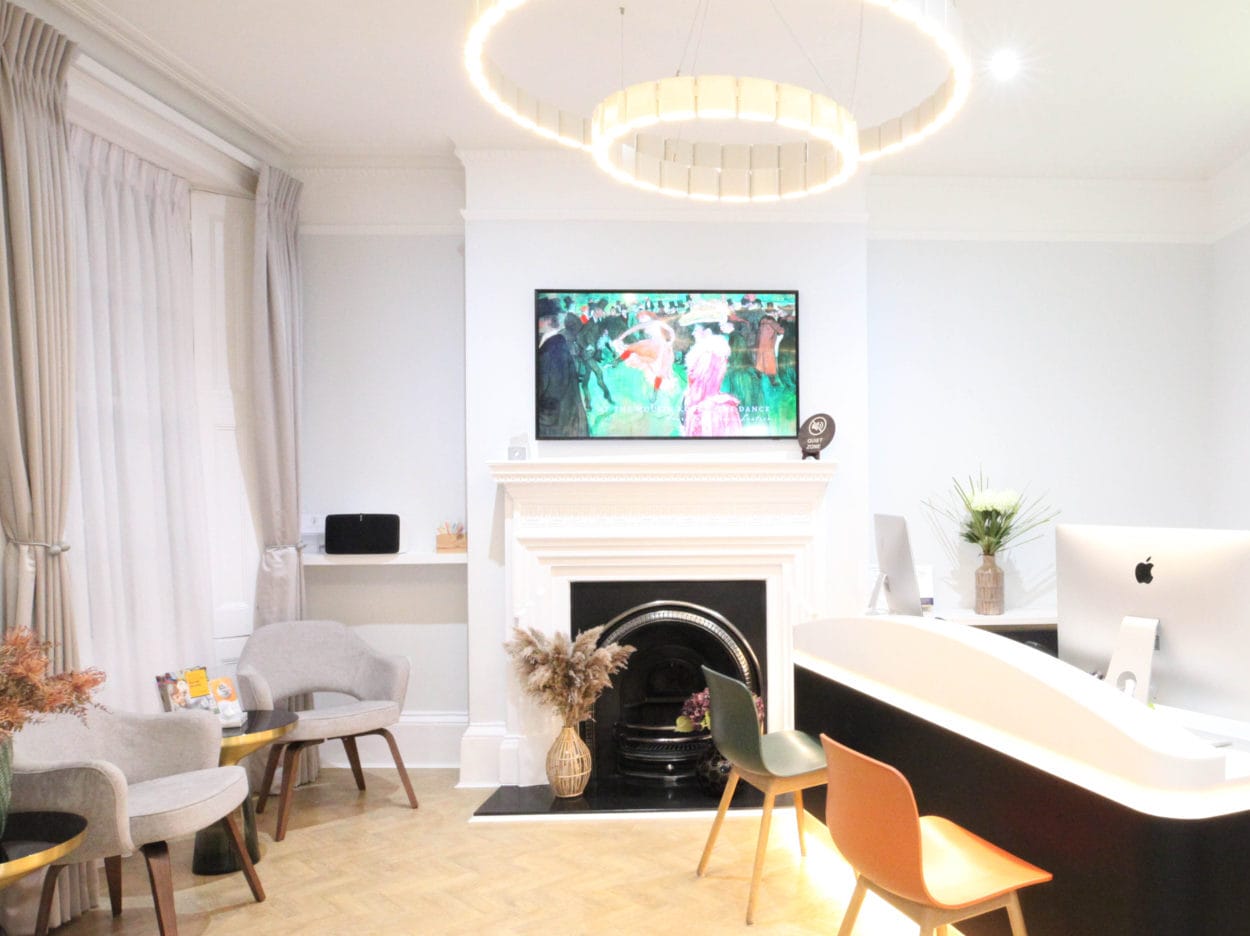
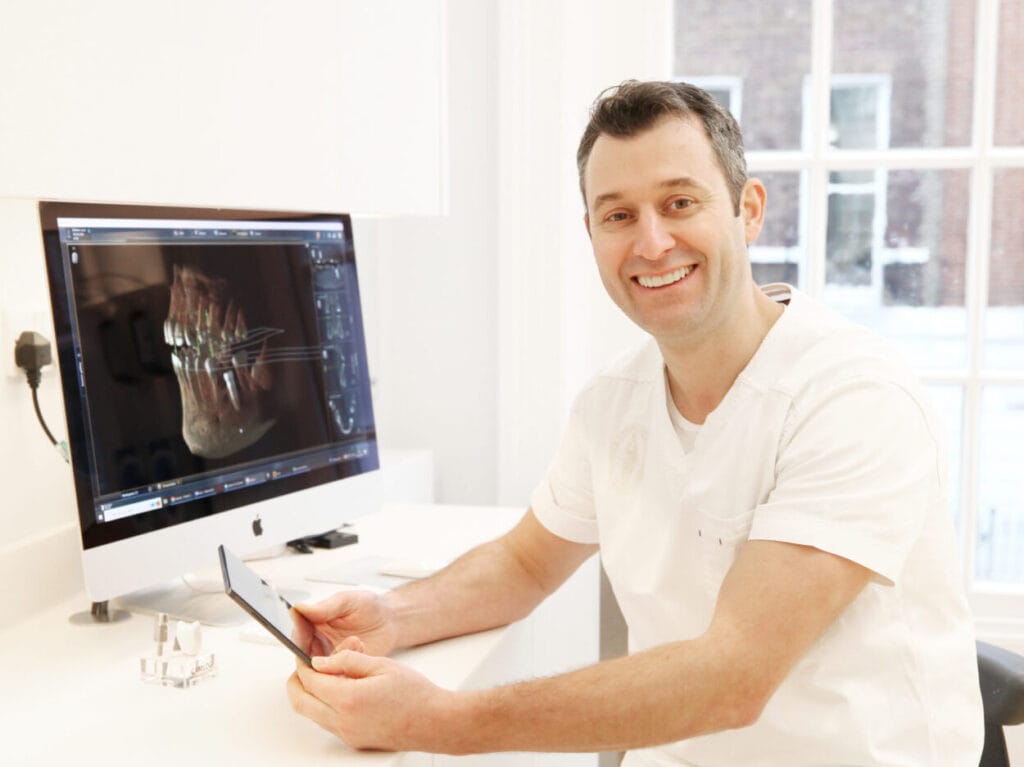
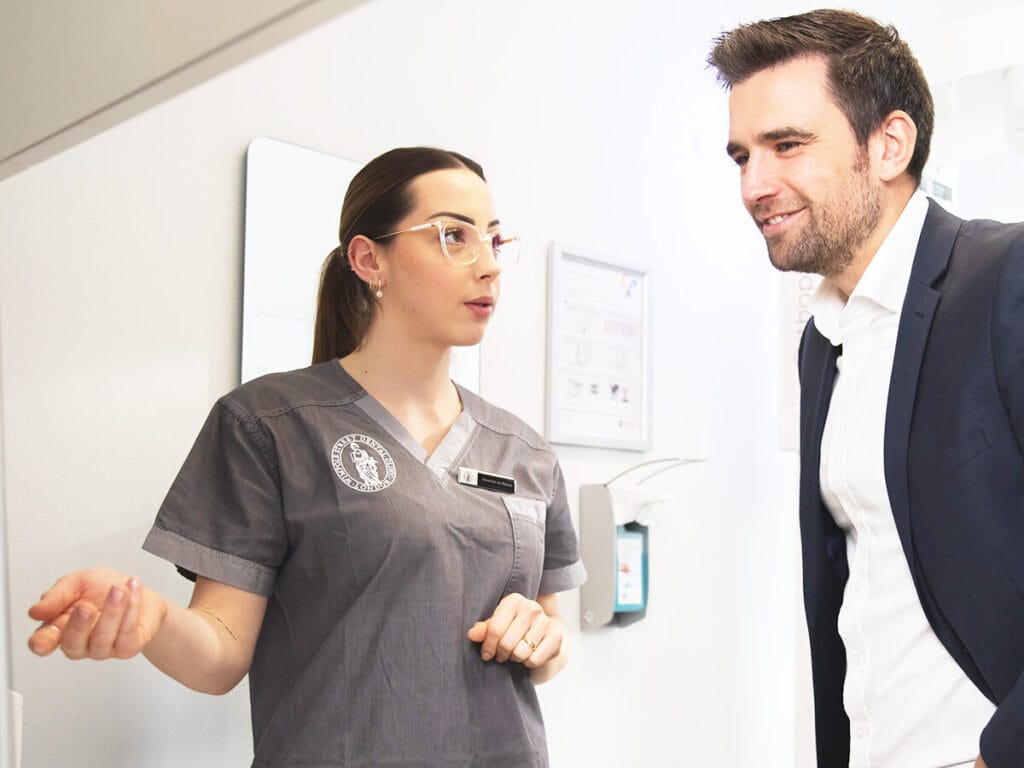
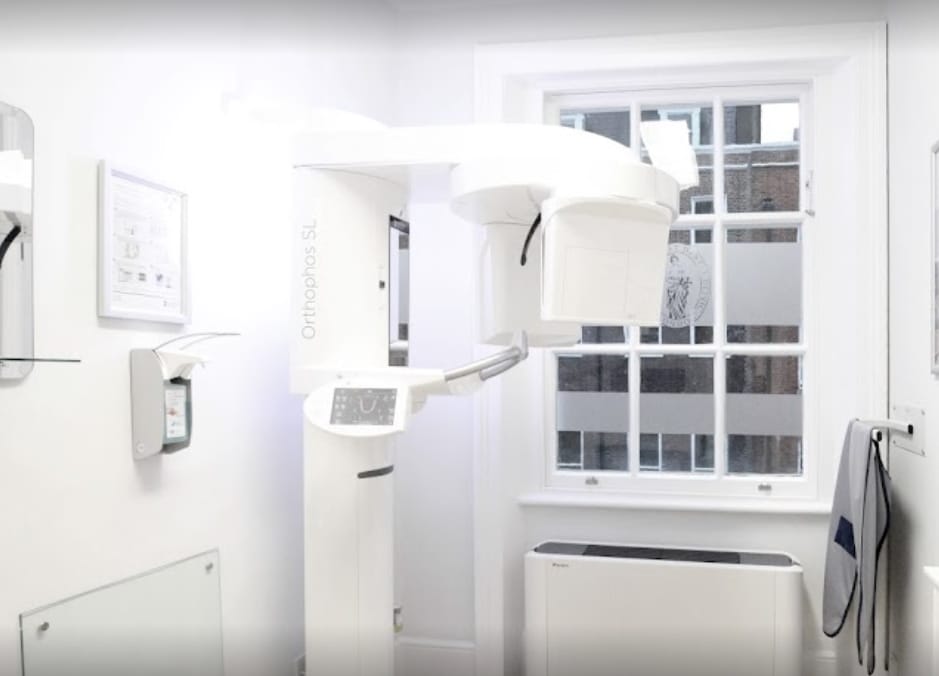

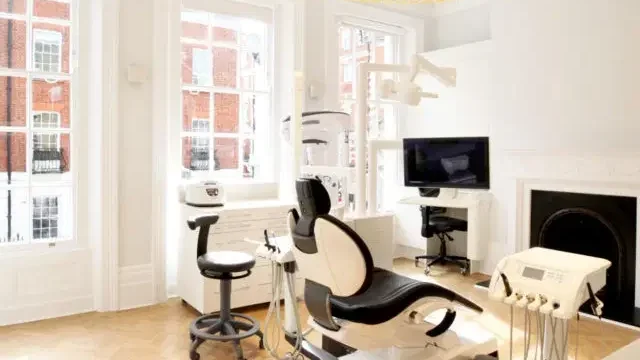
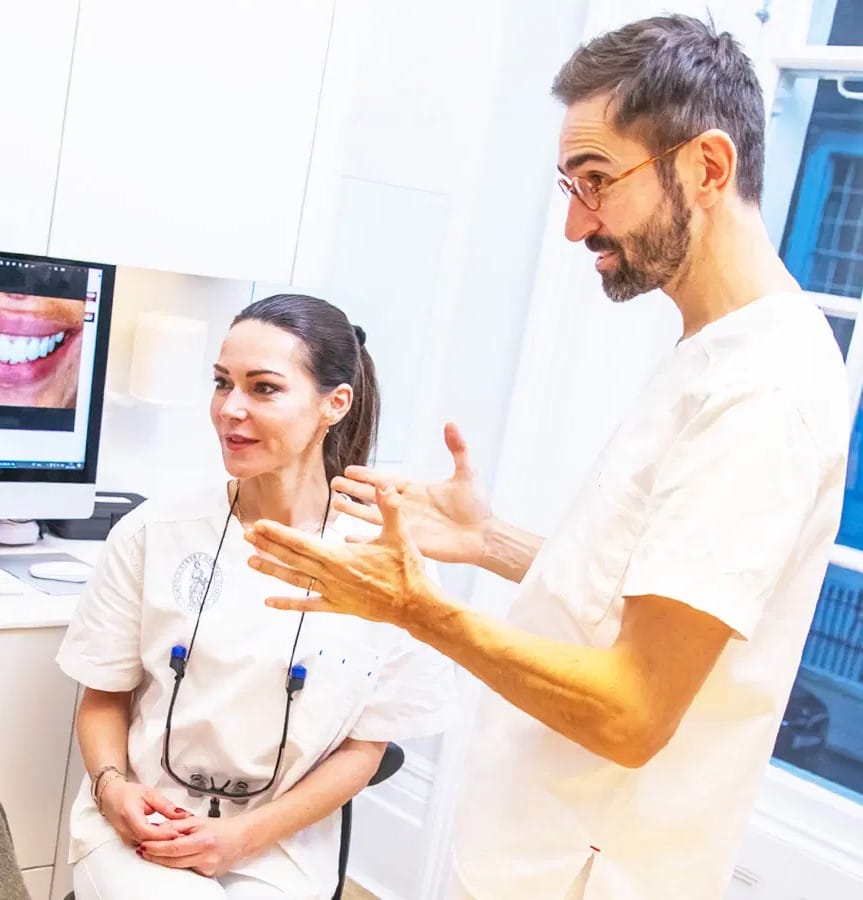
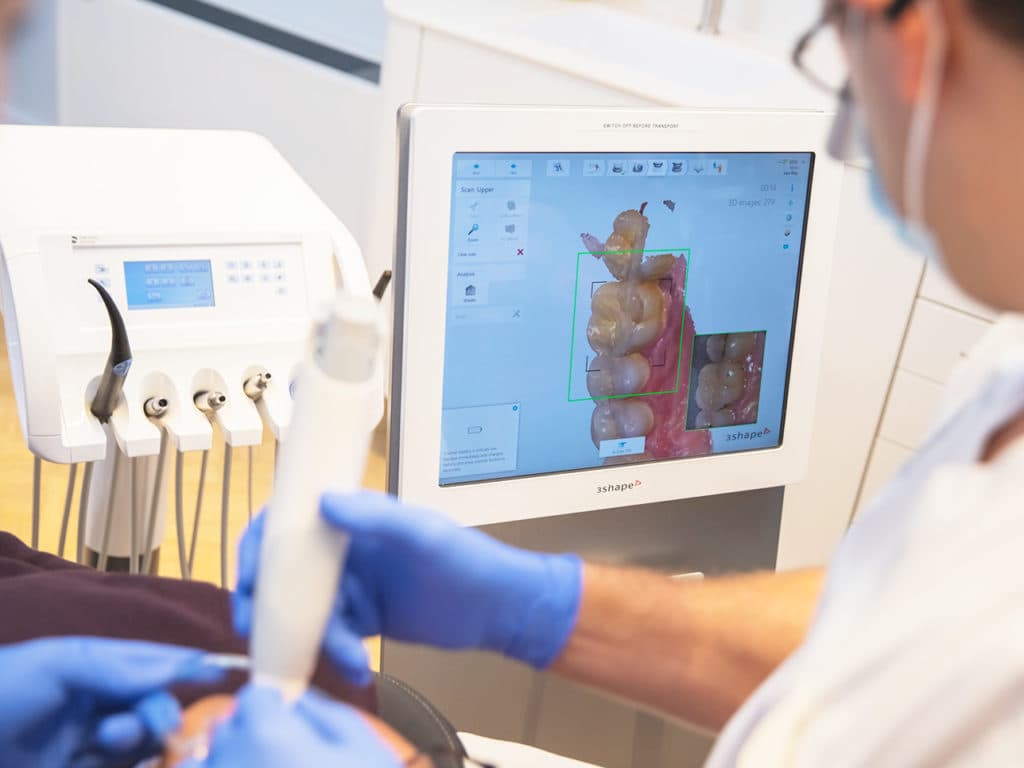
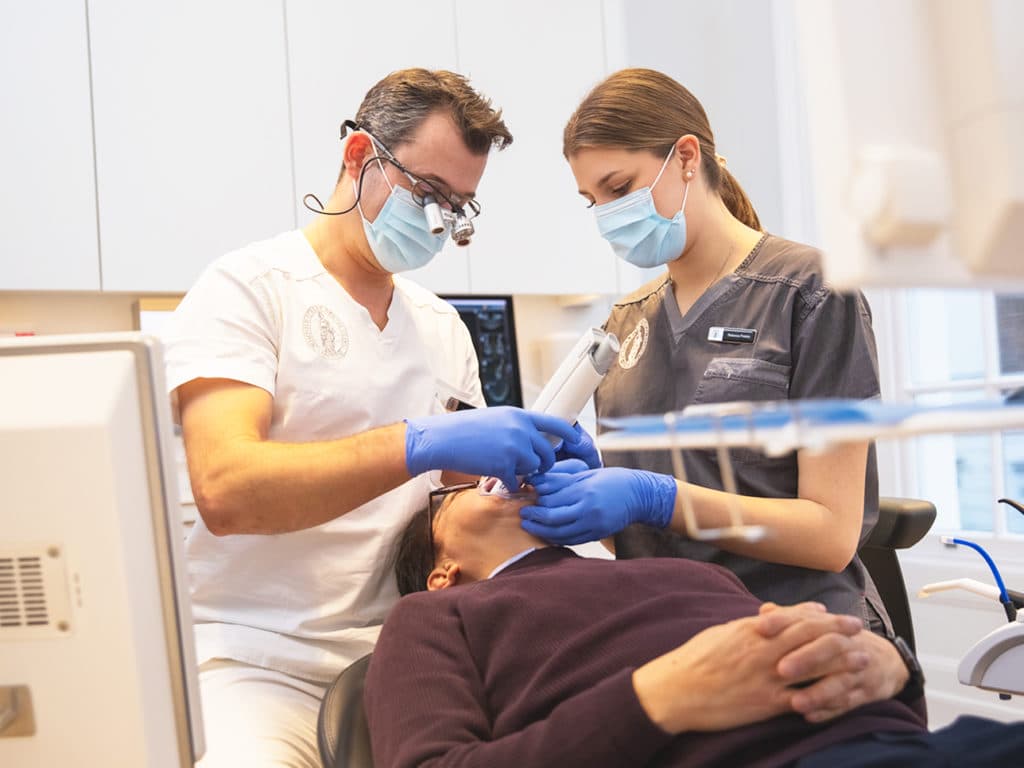
New page design
Written by: Prof Dr Christian Mehl
Medically reviewed by: Dr Raul Costa
Author biography added
Written by: Prof Dr Christian Mehl
Medically reviewed by: Dr Raul Costa
Original content created
Written by: Prof Dr Christian Mehl
Medically reviewed by: Dr Raul Costa
Wimpole St Dental Clinic has strict sourcing guidelines and relies on peer-reviewed studies, academic research institutions, and medical associations. We avoid using tertiary references. You can learn more about how we ensure our content is accurate and current by reading our editorial policy.
- Mehl C, Harder S, Byrne A, Kern M. Prosthodontics in digital times: a case report. Quintessence Int. 2013 Jan;44(1):29-36. doi: 10.3290/j.qi.a28744. PMID: 23444159.
- Mehl C, Wolfart S, Vollrath O, Wenz HJ, Kern M. Perception of dental esthetics in different cultures. Int J Prosthodont. 2014 Nov-Dec;27(6):523-9. doi: 10.11607/ijp.3908. PMID: 25390865.
- Mehl CJ, Okano N, Ludwig K, Kern M. Retention of bonded titanium copings fixed to implant abutments. J Prosthet Dent. 2016 Jan;115(1):26-34. doi: 10.1016/j.prosdent.2015.09.012. Epub 2015 Nov 6. PMID: 26548873.
- Mehl C, Harder S, Lin J, Vollrath O, Kern M. Perception of dental esthetics: influence of restoration type, symmetry, and color in four different countries. Int J Prosthodont. 2015 Jan-Feb;28(1):60-4. doi: 10.11607/ijp.4005. PMID: 25588175.
- Harder S, Quabius ES, Meinke F, Mehl C, Kern M. Changes in proinflammatory gene expression in human whole blood after contact with UV-conditioned implant surfaces. Clin Oral Investig. 2019 Oct;23(10):3731-3738. doi: 10.1007/s00784-019-02801-7. Epub 2019 Jan 21. PMID: 30666479.

















